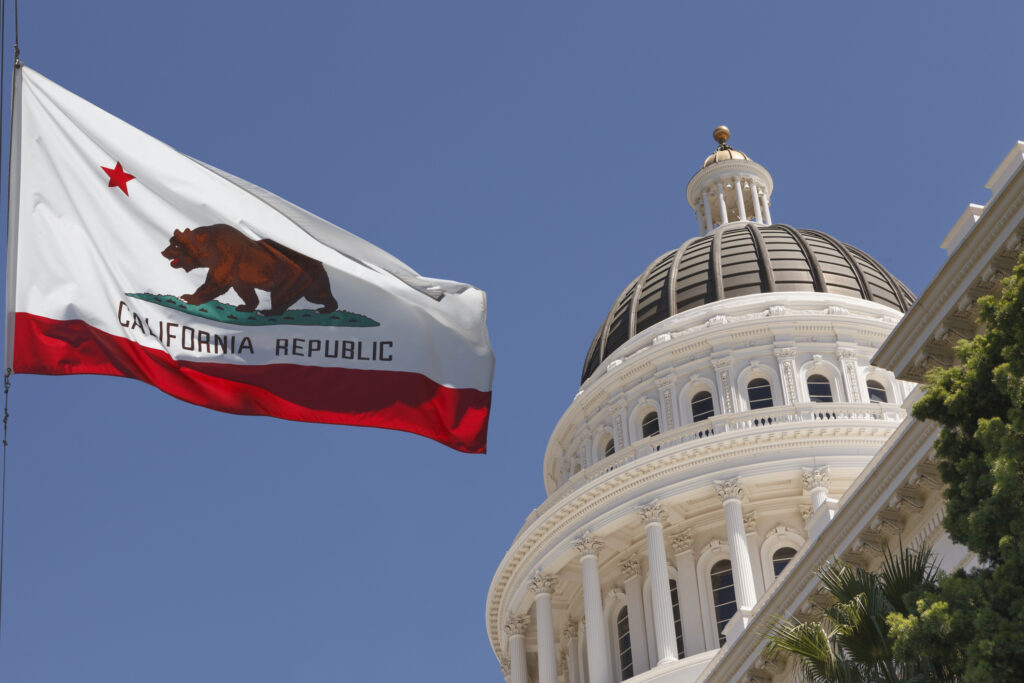This article was originally published in the Mercury News.
PPIC findings show ballot initiative borne out of frustration with property crime, fentanyl dealing has 71% support from likely voters
A new statewide poll shows that Proposition 36, a ballot measure aimed at rolling back criminal justice reforms from the past decade and instituting harder penalties for theft and drug crimes, has overwhelming support suggesting it will comfortably pass in November, according to newly released data from the Public Policy Institute of California.
The PPIC, which surveyed an array of November election items ranging from the presidential race to other state ballot initiatives, reported Wednesday that its polling conducted between late August and early September shows 71% of likely voters support Proposition 36, compared to 26% who oppose it.
Mark Baldassare, PPIC’s statewide survey director, said questions about Proposition 36 elicited high engagement from respondents and highlighted its across-the-board favorability.
“It’s an unusual level of support for a proposition,” Baldassare said. “We don’t use the term ‘overwhelming majority’ lightly around here. I was impressed by the level of support that you’re seeing across ideology.”
According to its authors, the prospective law aims to amend existing statute by undoing the $950 threshold for theft to be charged as a felony and stiffening punishments for drug dealing that has fueled the fentanyl and opioid crises.
Several of the proposed changes would nullify components of Proposition 47, which nearly 60% of state voters approved in 2014, making lower-level theft and drug crimes misdemeanors as part of a broader movement to comply with a U.S. Supreme Court order to decrease the state prison population.
Proposition 36 enjoys a wide advantage in every region of the state classified by PPIC, with the largest, the Los Angeles area, mirroring the statewide 71%-26% spread of supporters and opponents. The Bay Area shows the closest margin, with 64% in favor to 32% opposed, according to the poll data.
The PPIC, which surveyed more than 1,000 likely voters, also suggests that proponents’ framing of Proposition 36 as a middle-of-the-road proposal has landed with Californians. Survey data showed that 77% of respondents who identified as politically moderate supported the ballot measure, and that 85% and 56% of self-described conservatives and liberals, respectively, did so as well.

Baldassare said that while “it would take effort from the ‘no’ side” to close the gap, the ballot race isn’t a foregone conclusion. Between now and November, he said, voters increase their research on the issues, and are more likely to move from a “yes” position to a “no” position than the other way around.
“This obviously has gotten people’s attention,” he said. “Whether that support will continue to be as high as it is, or change over time, is a matter of voters hearing from both sides.”
Part of the inspiration for Proposition 36 was an increase in visibility of organized retail theft crimes, spurred by viral videos that flooded social media starting in the pandemic, and a huge spike in fentanyl related crimes and deaths both in California and across the country. A key component of the proposed law would be to make any theft, regardless of value, a felony if it is committed by a person with two prior theft convictions.
According to U.S. Department of Justice figures, as of the end of 2023, property crime continued to trend downward over the past decade in the nine Bay Area counties, except for Alameda County. Statewide, the property crime rate has decreased more than 14 percent.
But a PPIC analysis of California Department of Justice figures also shows that between 2019 and 2023, shoplifting increased by 28 percent, with 90 percent of that surge occurring in Alameda, San Mateo, Los Angeles and Sacramento counties.
Additionally, Proposition 36 supporters — which include San Jose Mayor Matt Mahan and San Francisco Mayor London Breed, the state associations of police chiefs, sheriffs and district attorneys and businesses ranging from small Bay Area restaurants to Walmart, Target and Home Depot — claim shoplifting crimes remain underreported because of their current classification as misdemeanors.
Gov. Gavin Newsom and his allies opposed the measure, and at one point he proposed, then revoked, a competing ballot measure. Last month, Newsom signed a package of crime bills that tackled tenets of Proposition 36, notably by empowering prosecutors to aggregate multiple thefts to meet the existing $950 felony threshold.
The nonpartisan Legislative Analyst’s Office has estimated that Proposition 36 would raise state costs from between “several tens of millions of dollars” and “the low hundreds of millions of dollars” by increasing the prison population. The LAO did mention an unmeasurable potential for the initiative to reduce costs as a result of lower crime.
Opponents, which include Contra Costa County District Attorney Diana Becton, former San Jose and San Diego police chief William Landsdowne, and a host of civil rights and criminal justice reform groups, argue that the proposition will primarily lead to higher prison populations and divert funds from mental health and other preventative programs. They also contend that a police- and court-oriented response to issues like drug addiction and homelessness would mark a return to ineffective “War on Drugs” policies.
Supporters argue that Proposition 47 led to unchecked shoplifting and other property crimes motivated by drug use, and that Proposition 36’s proposal to present certain drug offenders with the choice of court-ordered rehabilitation or jail time is a response to the ineffectiveness of current policies.

